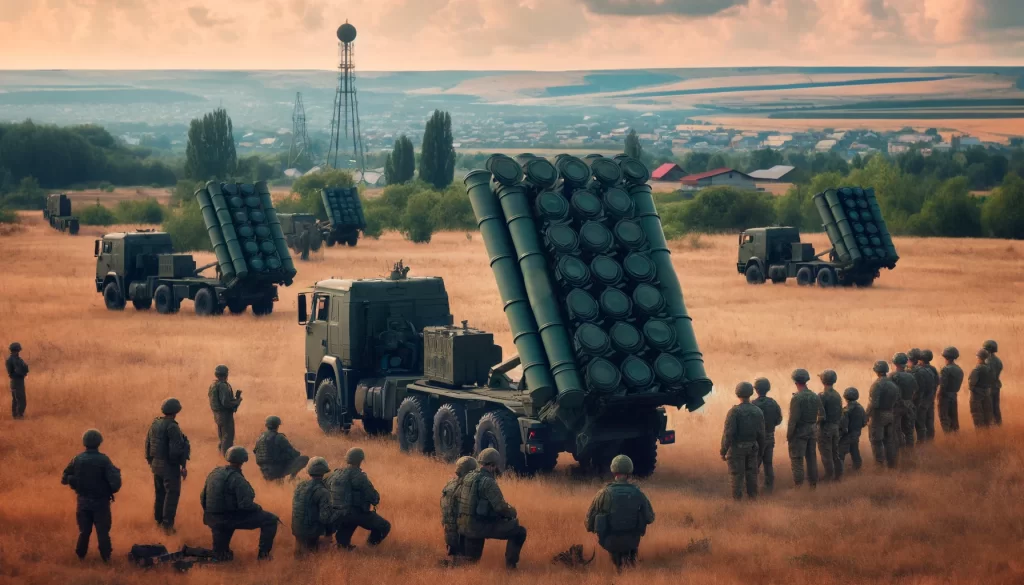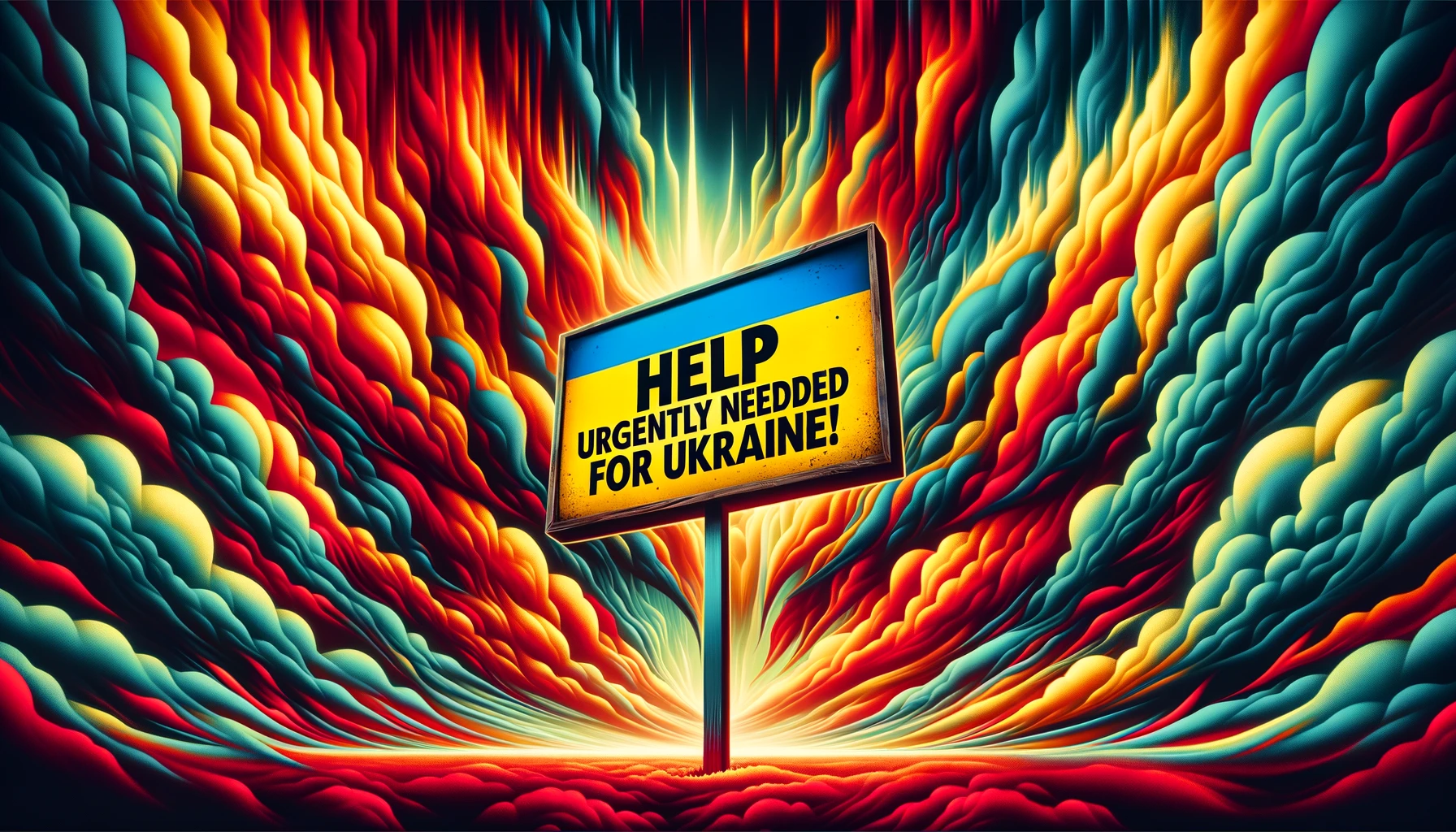On May 21, 2024, President Volodymyr Zelensky of Ukraine sat down for an extensive interview with The New York Times in Kyiv. In this interview, Zelensky made a fervent appeal to the United States and European nations for increased military aid to bolster Ukraine’s defenses against Russia’s aggressive advances. Zelensky’s remarks highlighted his ongoing frustrations with the West’s cautious approach, particularly regarding fears of nuclear escalation.
Key Points from the Interview
- NATO Involvement in Air Defense
Zelensky urged NATO to take a more active role in defending Ukraine by shooting down Russian missiles over Ukrainian airspace. He asserted that such actions would be purely defensive and would not risk direct conflict with Russian forces. Zelensky emphasized this point by stating, “So my question is, what’s the problem? Why can’t we shoot them down? Is it defense? Yes. Is it an attack on Russia? No. Are you shooting down Russian planes and killing Russian pilots? No. So what’s the issue with involving NATO countries in the war? There is no such issue.” He further added, “Shoot down what’s in the sky over Ukraine. And give us the weapons to use against Russian forces on the borders.”
- Appeal for Advanced Weaponry
The Ukrainian president also called for more advanced weaponry, specifically F-16 fighter jets and additional Patriot air defense systems. He noted that Ukraine would need at least seven Patriot systems to protect critical regions essential to the nation’s economy and energy sector. Zelensky suggested that a decision on providing these weapons might be reached at the NATO summit in Washington in July, coinciding with the NATO anniversary.
- Cross-Border Attacks
Zelensky expressed his frustration with the United States’ reluctance to allow Ukraine to use American-supplied missiles to strike military targets inside Russia. He argued that this restriction gives Russia a “huge advantage” in the ongoing conflict, as Russian forces can stage assaults from within their territory without fear of retaliation. Zelensky stated, “How do we respond when they strike our cities? They proceed calmly, understanding that our partners do not give us permission” to use their weapons to retaliate.
- Nuclear Escalation Concerns
Addressing the West’s primary concern about nuclear escalation, Zelensky downplayed the likelihood of such an event. He argued that Russian President Vladimir Putin would avoid using nuclear weapons to preserve his own life. “He may be irrational, but he loves his own life,” Zelensky said. He also suggested that some Western countries might be hesitant to escalate their involvement due to economic and diplomatic ties with Russia, noting, “Everyone keeps the door slightly ajar.”

- Diplomatic and Political Context
The interview also touched upon the broader diplomatic and political landscape. Zelensky reiterated his call for Ukraine’s NATO membership and supported recent suggestions from some allies to send NATO troops to train or support Ukrainian forces. He emphasized that immediate and decisive support is crucial for Ukraine’s survival and success.
In the context of potential cease-fire negotiations, Zelensky called for diplomatic efforts that align international support with Ukraine’s terms for peace. He proposed a peace summit in Switzerland to address key issues such as securing Ukrainian food exports, prisoner exchanges, the safety of a Russian-occupied nuclear power plant in southern Ukraine, and the return of Ukrainian children allegedly taken to Russia.
- Personal Reflections
Zelensky also shared personal reflections during the interview, discussing the emotional toll of visiting mass graves and comforting families of fallen soldiers. He mentioned how he finds solace in the limited time he spends with his children, describing these moments as his “happiest moments.” Zelensky added that he recharges by working out in the mornings and reading fiction at night, though he often falls asleep quickly.
- Challenges and Resilience
The interview highlighted the significant challenges facing Zelensky and Ukraine. Despite the ongoing war, Zelensky remains focused on his leadership role, even as his presidency extends indefinitely under martial law. Currently his party, Servant of the People, holds a majority in Parliament, but maintaining party discipline has been challenging.
Asked to evaluate the health of Ukrainia’s democracy, Zelensky said, “Ukraine doesn’t need to prove anything about democracy to anyone because Ukraine and its people are proving it through their war. Without words, without unnecessary rhetoric, without just rhetorical messages floating in the air. They prove it with their lives.”
This article is based on the following article:
https://www.nytimes.com/2024/05/21/world/europe/ukraine-zelensky-interview.html

Background Information
Ukraine-Russia Conflict
Historical Context
- Soviet Union Era: Ukraine was part of the Soviet Union until its dissolution in 1991. After gaining independence, Ukraine faced various political and economic challenges as it transitioned from a Soviet republic to an independent nation.
- Crimea Annexation: In 2014, Russia annexed Crimea, a Ukrainian territory, following a disputed referendum. This event significantly strained relations between Ukraine and Russia and led to the ongoing conflict in the eastern regions of Ukraine, particularly in the Donbas area.
Recent Developments
- Full-Scale Invasion: In February 2022, Russia launched a full-scale invasion of Ukraine, leading to widespread destruction and a significant humanitarian crisis. The conflict has resulted in thousands of deaths, displacement of millions, and severe economic impacts on both Ukraine and the global economy.
- Western Support: Since the invasion, Western nations, including the United States and European countries, have provided substantial military, economic, and humanitarian aid to Ukraine. This support aims to help Ukraine defend itself against Russian aggression and maintain its sovereignty.
NATO and Ukraine
NATO’s Role
- North Atlantic Treaty Organization (NATO): NATO is a military alliance established in 1949, consisting of 30 member countries from North America and Europe. Its primary purpose is to ensure the security and defense of its member states through collective defense agreements.
- Ukraine’s NATO Aspirations: Ukraine has expressed a desire to join NATO for many years, seeking security guarantees and support from the alliance. However, NATO membership for Ukraine has been a contentious issue, partly due to concerns about provoking Russia and the requirements for membership.
Military Assistance
- Weapons and Training: NATO countries, particularly the United States, have provided Ukraine with various types of military assistance, including advanced weaponry, training for Ukrainian soldiers, and intelligence support. This aid aims to enhance Ukraine’s military capabilities and resilience against Russian attacks.
- Air Defense Systems: Systems like the Patriot missile defense system and F-16 fighter jets are crucial for defending against aerial threats. These advanced technologies can intercept and destroy incoming missiles and aircraft, thereby protecting critical infrastructure and civilian areas.
Zelensky’s Presidency
Political Background
- Election and Mandate: Volodymyr Zelensky was elected President of Ukraine in 2019 on a platform of anti-corruption, peace negotiations with Russia, and economic reform. Before his political career, Zelensky was a well-known comedian and television personality.
- Martial Law: Due to the ongoing war, Ukraine has implemented martial law, granting the president extended powers and suspending certain democratic processes, such as elections, to focus on the war effort.
Leadership Challenges
- War Leadership: Zelensky has been at the forefront of Ukraine’s response to the Russian invasion, balancing diplomatic efforts to secure international support with domestic leadership to maintain morale and unity among Ukrainians.
- Public Support: While Zelensky enjoyed high approval ratings at the beginning of the war, public support has fluctuated based on the war’s progress and the government’s handling of various crises.
Nuclear Escalation Concerns
Global Implications
- Nuclear Threats: The potential use of nuclear weapons by Russia has been a significant concern for the international community. The fear of nuclear escalation has influenced the cautious approach of Western countries in providing military aid to Ukraine and engaging in direct military actions against Russia.
- Self-Preservation Argument: Zelensky argues that Russian President Vladimir Putin is unlikely to use nuclear weapons due to the self-preservation instinct, suggesting that the fear of nuclear escalation may be overblown.
Diplomatic Efforts and Peace Negotiations
Peace Talks and Proposals
- Cease-Fire Negotiations: Zelensky has called for diplomatic efforts to achieve a cease-fire and peace settlement without directly negotiating with Russia. He proposes rallying international support for Ukraine’s terms, which include securing Ukrainian food exports, prisoner exchanges, and the return of abducted Ukrainian children from Russia.
- Peace Summit: A proposed peace summit aims to gather international leaders to discuss and support initiatives for a peaceful resolution to the conflict.

Debate/Essay Questions
- Should NATO take a more active role in defending Ukraine by shooting down Russian missiles over Ukrainian airspace?
- Is the Western fear of nuclear escalation justified in limiting military support to Ukraine?
- Should the United States allow Ukraine to use American-supplied weapons to strike military targets inside Russia?
Please subscribe to Insight Fortnight, our biweekly newsletter!
